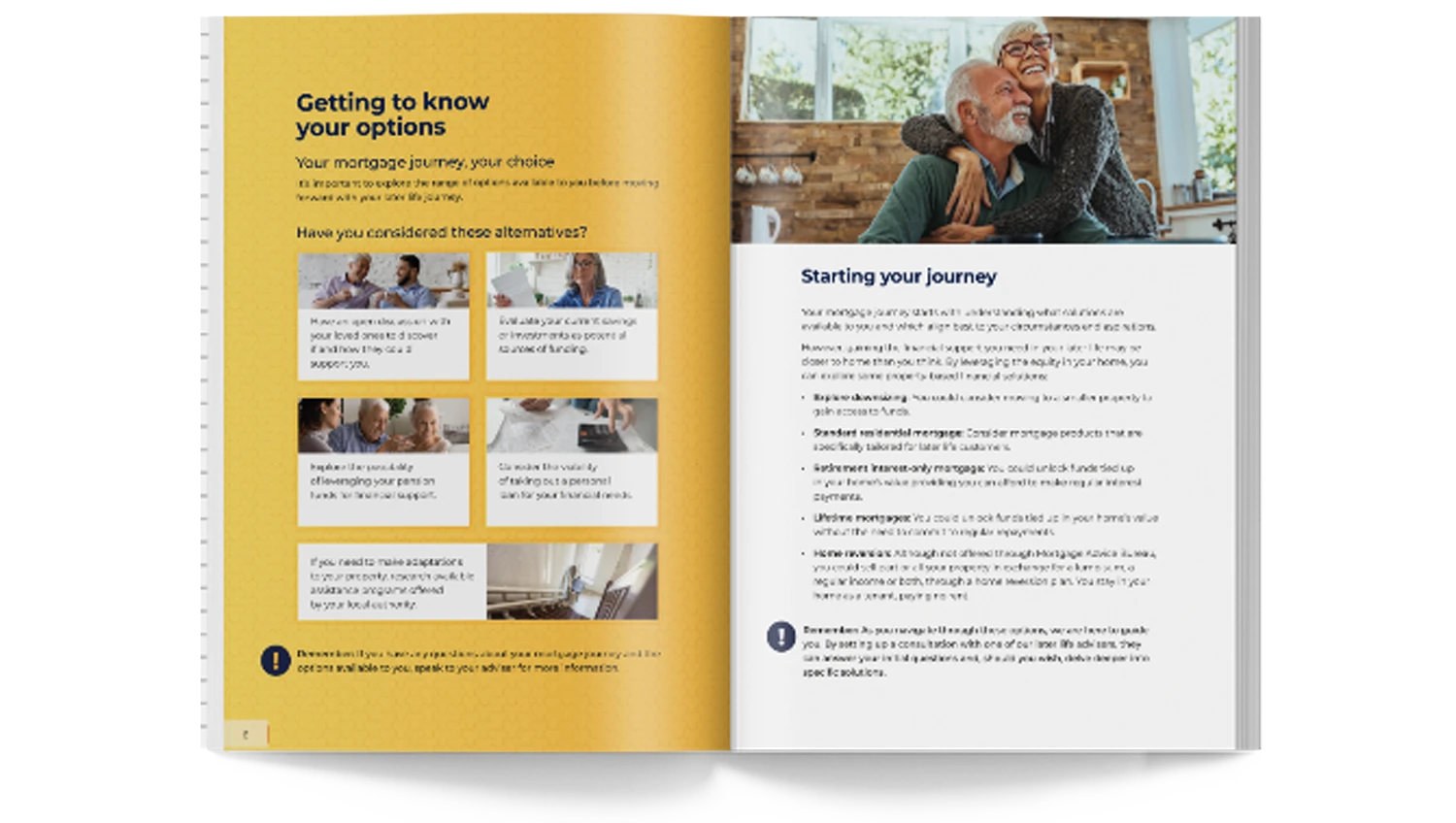Here’s what you need to know...
Getting a mortgage later in life might seem counterintuitive, but it doesn’t have to be. Most mortgages may be longer than 25 years, but there are plenty of options available for those aged over 50, and even if you're past retirement.
Let’s explore the ins and outs of getting a mortgage when you’re over 50:
What is the eligibility criteria?
Standard residential mortgages often have upper age restrictions in the UK, but some mortgages offer more flexibility. The eligibility is determined by the lender.
How much can I borrow?
Most applicants can borrow up to 4-4.5 times their annual income based on mortgage affordability rules.
Do I have to make regular repayments?
Yes, you can either make interest-only repayments, or repay both the interest and the principal at the same time.
When do I have to repay the full amount of the loan?
Repayment continues until the loan is fully repaid or when the homeowner/s sells the property, passes away, or moves into long-term care.
Want to learn more?
Download our later life guide
If you're nearing retirement or already enjoying it, our later life guide is designed to answer all your questions and provide clarity on the mortgage options tailored to your golden years.

Ready for a chat?
Book a callback
Fill in the form and one of our specialist advisers will contact you to expertly answer any questions you may have.
You can also call us directly on 03300 164386
Things to consider
You should always think carefully before securing a loan against your property. Your home may be repossessed if you do not keep up repayments on your mortgage.
Mortgage Advice Bureau charges a fee for later life mortgage advice. The fee is up to £995.
Other options to consider
Retirement interest-only mortgage
A retirement interest-only mortgage is a loan secured against your home.
You have to make monthly interest payments, but the full amount of the loan isn't usually repaid until you die or move out of the home into long-term care.
Your home may be repossessed, if you don’t keep up with the payments.
Lifetime mortgage
A lifetime mortgage is a loan secured against your home.
There’s no need to make monthly payments, unless you choose to.
A lifetime mortgage will reduce the value of your estate and may affect your entitlement to means tested benefits.
Frequently asked questions
Getting a mortgage, whether you’re 30, 50, or 70, involves the same processes. You’ll go through an affordability assessment, have your credit score checked, and apply in the same way.
While the criteria may be stricter, lenders have become more flexible. As life expectancy increases and people work for longer, many providers have begun to extend their maximum mortgage age limit.
Getting accepted for a mortgage should be relatively straightforward if you meet the lender’s criteria. The most important thing you need is a consistent income or some way to cover your repayments until the mortgage term ends.
Some of these mortgages may have a shorter duration, which can result in higher monthly repayments. Remember, everyone’s circumstances are unique, and a specialist adviser can help tailor a solution that works for you.
Our advisers have extensive knowledge of the products available, and will therefore be able to recommend a lender who will be able to help with your circumstances.
Lenders will assess your current income, repayment ability, and retirement income. They want assurance that you can repay the mortgage, even if you retire.
Here’s a breakdown of the factors they’ll look at:
- Income and employment status
- Credit score and history
- Age and loan term
- Assets and savings
Most applicants can borrow up to 4-4.5 times their annual income based on mortgage affordability rules. Some lenders may offer up to five times your income under the right circumstances, but it is unique to the individual and your affordability.
A standard residential mortgage can offer a degree of flexibility, whether through a capital repayment or an interest-only structure (where the repayment of the principal amount is due at the end of the term).
You will also have the option to choose a fixed interest rate to ensure steady repayments over a specified period, or a variable interest rate, which means repayments will vary if the rate changes. Rates are determined by the lender and are typically in line with the market.
There are pros and cons to each, so contact one our specialist later life advisers today and we’ll work with you to find the right solution for you.
Latest articles
No posts currently available
No posts currently available

